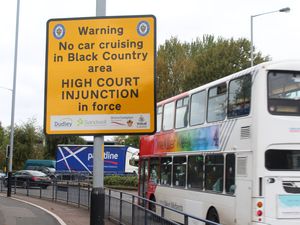Postcode lottery in council tax benefits
A postcode lottery will greet benefit claimants next month under controversial changes to council tax.
Each local authority has had to bring in its own scheme to provide help with council tax bills after the Government stripped them of millions of pounds of support.
From next month, they will lose 10 per cent of the funding they had to provide council tax support.
But they will have to continue to fund help for pensioners, which means the cuts can only be passed on to working-age people, some of whom will face cuts of 20 per cent in their council tax benefit.
Some authorities are absorbing the cuts for another year while others will be passing on some or all of the cut and will expect thousands of people to start contributing more towards services, such as bin collections, street lighting and libraries.
In Sandwell, claimants will have to have lived in the borough for two years before being eligible for support with council tax bills in a bid to prevent benefit tourism.
It comes as 20,000 working age people in Wolverhampton will have to start paying an average of £73 a year towards their council tax bills from next month. The city council is expecting people to pay 8.5 per cent of their council tax bills, although funding has been reduced by much more.
In Dudley and Walsall, the council is absorbing millions of pounds of cuts and will keep paying the same rates of council tax benefit.
In Cannock Chase, Lichfield, South Staffordshire and Stafford, people face a 20 per cent cut in council tax benefit. And help will be capped at Band D. Anyone in a Band E property or above will pay the difference.
In South Staffordshire, the amounts people will pay will vary based on circumstances.
For example, a working single mother of two, both aged over five and living in a Band F home would be expected to pay £29.37 a week in council tax.
A single disabled person in a housing association property would continue to be exempt from paying council tax.
But in Sandwell, council bosses have decided to continue to foot the bill for 18,000 people, despite losing £3.2m in grants.





